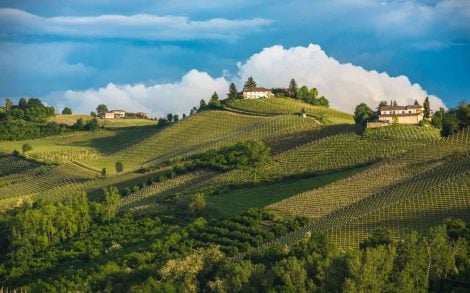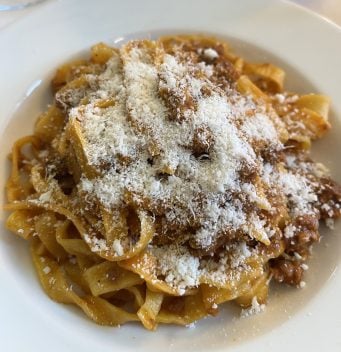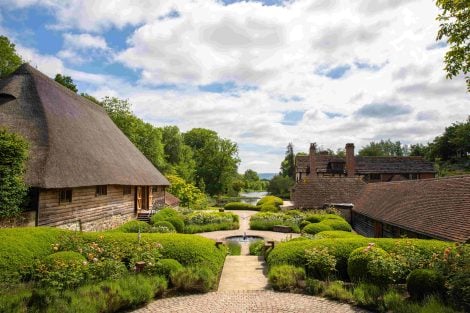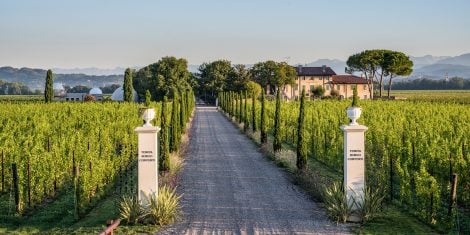When Alessandro Cozzolino (born in Caserta in 1989) talks about his career, he says that his professional path has been shaped by opportunities. At 21, he was at Arnolfo with his mentor Gaetano Trovato, and later—still with Trovato, now as senior sous chef—he participated in the Italian Cuisine Summit in Hong Kong for about ten days. That was enough to catch the eye of the manager of the Grand Hyatt Hotel, who followed his progress from afar, observing his work in kitchens such as those of Nino Di Costanzo and Régis Marcon, a three-star chef in France known for his commitment to natural ingredients and seasonal products. These experiences eventually led Cozzolino back to Hong Kong, where he was invited to a challenging cooking trial. They were looking for someone like him: young, passionate, with an impressive resume.
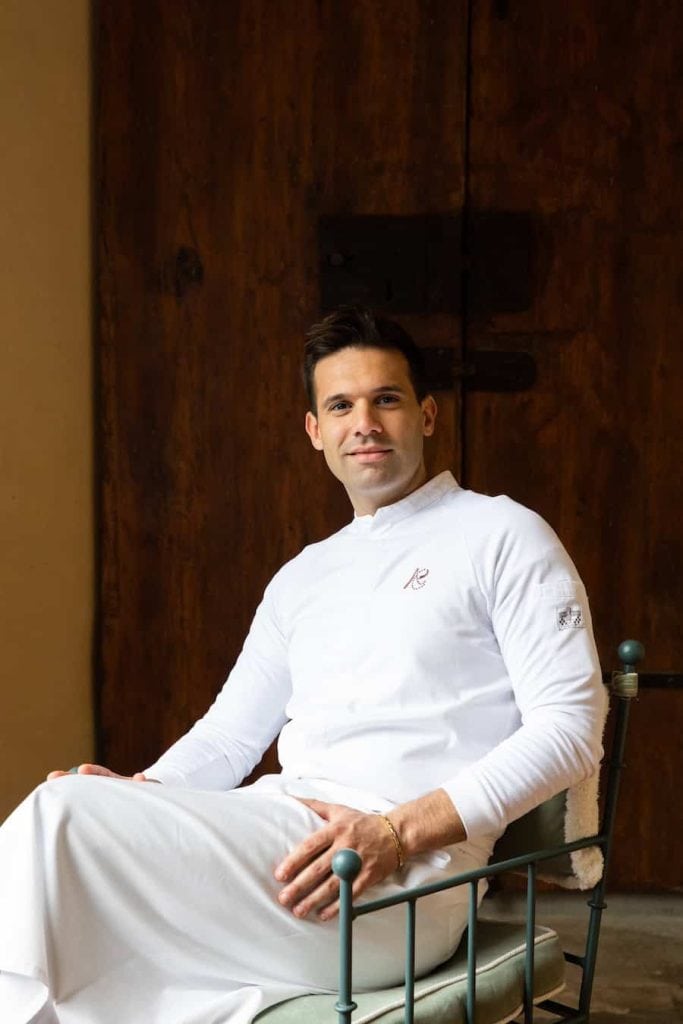
Photo: Letizia Cigliutti
“They treated me like a famous chef. I found a limousine waiting for me for the trial—one of the most difficult food tastings of my life: four traditional dishes, one with my personal touch.” It was a true exam, and he passed with flying colours. By the end of 2014, at just 25 years old, Cozzolino became the chef de cuisine at Grissini in the Grand Hyatt. He stayed for five years, earning numerous accolades, including being named Chef of the Year by the Top Italian Restaurants Guide in 2017.
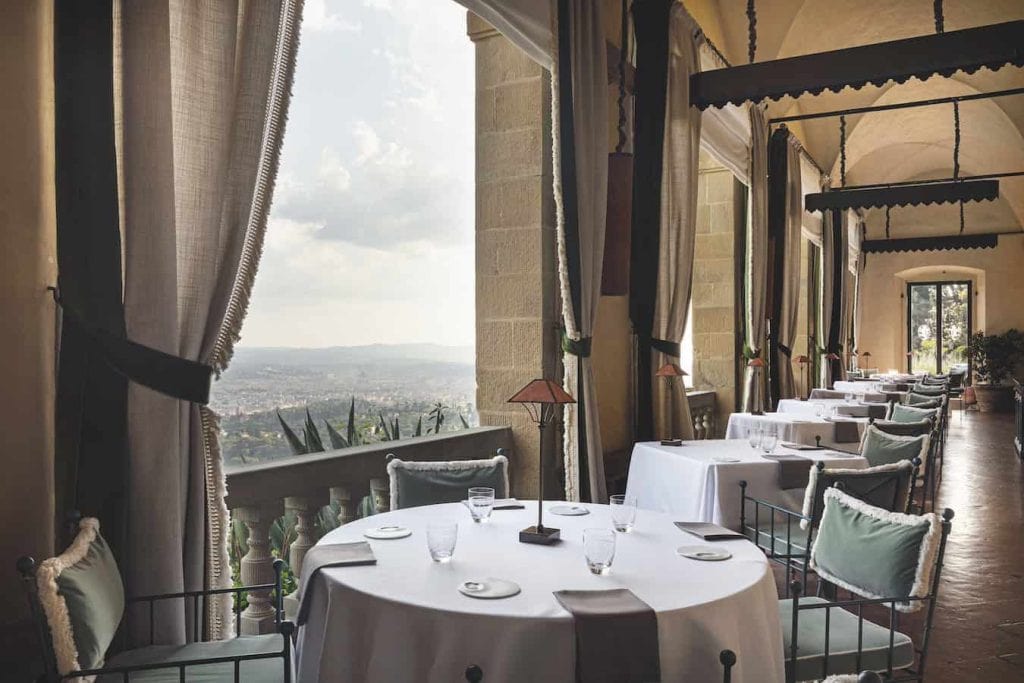
Restaurant La Loggia at Belmond Villa San Michele, Photo by Mattia Aquila
Then came the return to Italy, in 2019, to Belmond Villa San Michele in the hills of Fiesole. We interviewed him, and he shared insights into the world of expat fine dining chefs and how they are treated, in ways that perhaps don't exist in Italy: “But no one calls a chef from Hong Kong to bring him to Florence.” What are the differences between these two worlds that seem so far apart? He told us.
What were those years in Hong Kong like?
They were an opportunity to grow. Being different is something that shapes you; I came from small-town Italy and ended up in Hong Kong. Those years were filled with changes in habits and ways of doing things; that city gave me incredible energy and helped me grow tremendously.
Did being Italian influence you?
I've always felt Italian and have always been very attached to my roots, but I took the opportunity to have other experiences. However, I never wanted to escape; I've always stayed true to myself.
And how did you handle the distance from home, from your loved ones?
My family has always made me feel close, no matter where I was. Plus, with my contract, I was very well taken care of: I had great benefits, the airfare paid to go home twice a year, and I could spend time with my family even more than I do now. But back then, before Covid, it was normal: the government told companies that if they wanted an expat, they had to take care of them. I had a work permit guaranteed by my company; when they hired me, they opened a bank account for me, found me a place to live, and assigned a coach for two months to help me with practical matters because the moment you step out of the airport, there's a huge cultural and language difference. Families there would even pay for etiquette teachers for their children who were going to the West.
What's life like in Hong Kong for a foreigner?
You need a strong character, or it can be difficult: Hong Kong is one of the most expensive cities in the world, where there are many opportunities but also the risk of getting lost. You can spend your salary without even realising it. I was a bit reckless to take the leap, but also lucky to join a company that took care of me. Now, I admit I'd be a bit scared to start over.
What's it like living in such a different society?
I had a great experience; Cantonese culture is, in many ways, very similar to Italian culture: people spend time together, they eat together at the table, and once you build a relationship, you become like family. Communication was 80% emotions, eye expressions, because we spoke in English, a language that wasn’t native to either of us. I went back last autumn for a week, and they welcomed me like a brother: in those five years, I formed incredible bonds with people who taught me things I didn't even know existed at 24 years old.
So why did you come back?
I didn’t leave because I wanted to; an opportunity came up that seemed good, so I took it. As chefs, we feed on ingredients, techniques, but also on stimuli. As long as you have those, you don’t think about leaving—and the Grand Hyatt provided plenty of those, with amazing events and international clients, including celebrities like Stallone, Schwarzenegger, and Coldplay—but with Villa San Michele, another opportunity arose, with even stronger stimuli. I told myself it was time to come home and start a new project in my country.
What convinced you?
You think, “Maybe I can do well here too,” and you put yourself to the test again. When you look at the view from Villa San Michele, for someone passionate about art like me, you think, “It’s time to come home.”
Was that the only reason?
No, it was also about culinary inspiration: Tuscany is a stunning land, with great products and producers. Here, I'm always in contact with suppliers to study seasonality, which nowadays is no longer just spring, summer, autumn, and winter, but more specific. For that, you need a close relationship with those who produce. I’m having a lot of fun from that point of view, and it’s a completely different project. I was also excited about having more responsibility than before. Here, we have three restaurants; there, I only had one, plus a separate team for events.
Do you miss that international environment?
No: even here in the team, there aren’t just Italians; we have people from different cultures, we’re very open. The kitchen is a family; I’ve always seen it that way. We have the goal of being passionate and making others passionate.
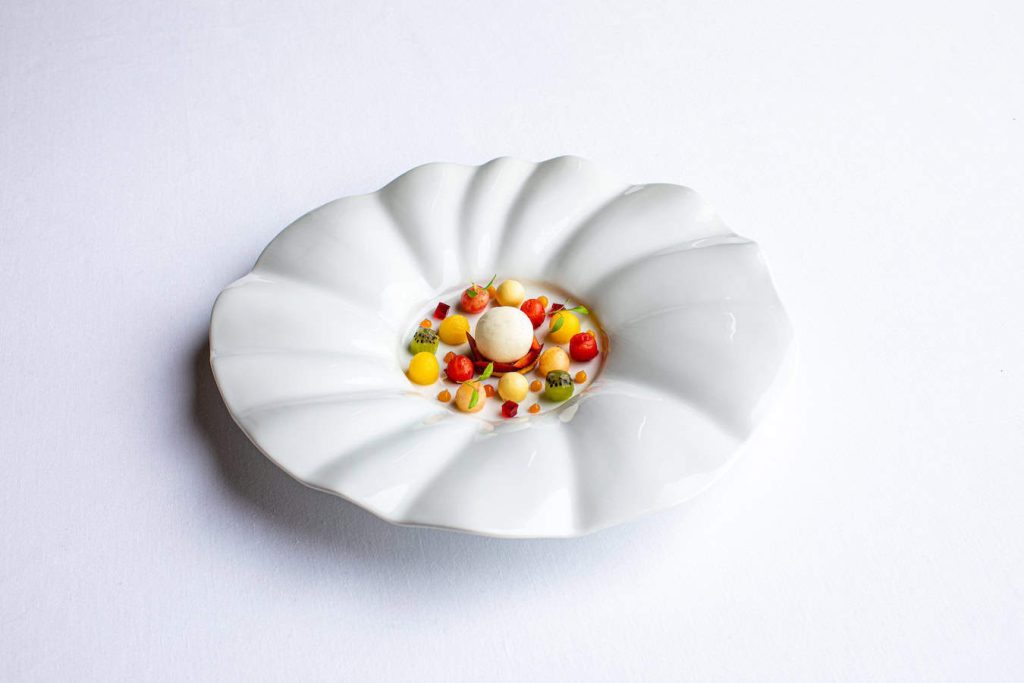
Alchermes Santa Maria Novella-Photo: Letizia Cigliutti
And the differences in approach to cooking?
I have my own background. I make tomato sauce with celery, carrot, and onion; someone else might use onion and garlic. But let’s say cooking is so emotional that you find new compromises year after year. It’s like a football team; I don’t find many differences: it’s a team effort where each member brings their own technique.
How is the work organised?
You create a rotation, with two days off per week, while other establishments might only offer one day off. The Italian law sets work hours, and as long as you follow those, you’re fine. In large hotels, it’s the same worldwide.
And from a practical standpoint?
You have to adapt: in my first year, they advised me to integrate into the local culture and habits. For example, there are days when people have to be with their families, like during Chinese New Year, and you can’t deny them that, so I made schedules and shifts accordingly.
What about the food?
Technically, they ate less salty. Here we use capers or anchovies, while they were more cautious with these ingredients. But they leaned more on umami.
What did you bring back from your experience in Hong Kong?
Internationality. There, I opened my mind, tasted the incomprehensible, and discovered new flavours and products.
Which ones?
For example, flavour enhancers, different types of soy sauce, and jasmine tea. I tried a really interesting tea pairing that opened up a whole new gastronomic world for me. And many other things: the way to cook long-grain rice, the way to prepare poultry. Personally, I learned a lot. Before, I only knew Europe, and we Europeans are quite similar. Over there, it’s a different lifestyle, a different way of relating, behaving, speaking—not to mention their table habits, with the bowl and the small plate for leftovers. Now I know them very well; I understand why they behave a certain way. And even though it’s a culture unto itself, very refined, it’s in some ways very similar to Europe. My heart is now Cantonese.
And do companies operate differently?
Every company has its budget, and when you agree to work with one, you also accept that. But then, when you manage a restaurant, you treat it as if it were your own, aiming to meet the set targets. You need to constantly monitor purchases and revenues; you have your budget and food costs. We have many meetings with department heads to analyse how the establishment is doing. Each person in their department must ensure that it’s profitable while maintaining quality. At first, you may encounter difficulties because managing people is challenging. Still, once you organise the work, the procedures are the same, and the result is the same. Maybe the templates, programs, or some steps vary, but the goal is always the same in terms of budget, staff training, and coaching.
The staff is a key point...
You never stop learning with staff; there’s no standard rule for the whole world or even for Italy. You have to involve everyone, make them passionate and attached to your idea of cooking. And you need to figure out how to help each person in front of you become better and better.
How do you see yourself in the future?
When I imagine myself in a few years, I ask myself what I’d like: the answer is to learn more. Florence gives you daily stimuli, even just looking at the city from Villa San Michele’s loggia. In life, things happen, and if you have the right feeling, you decide whether to move forward or stop. I have countless opportunities to change direction, but here it’s very stimulating.
Belmond Villa San Michele - Fiesole (FI) - via Doccia, 4 - www.belmond.com/it/villa-san-michele-florence/
Cover photo: Letizia Cigliutti

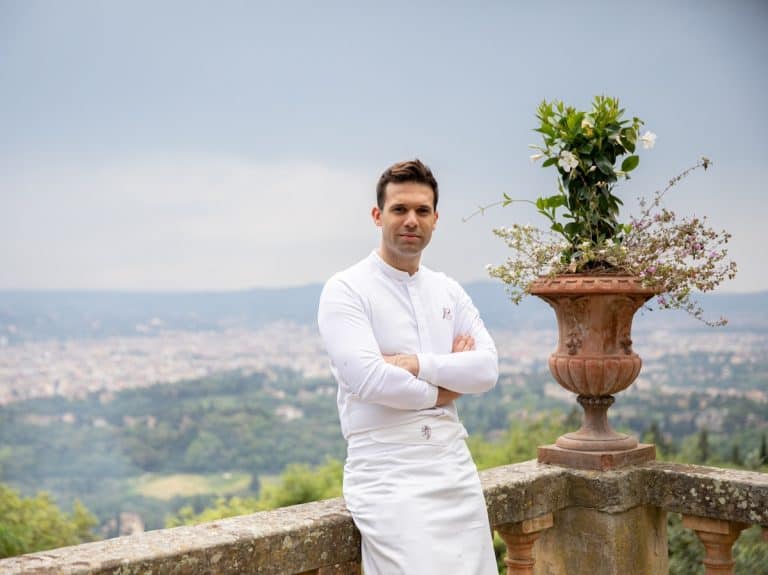
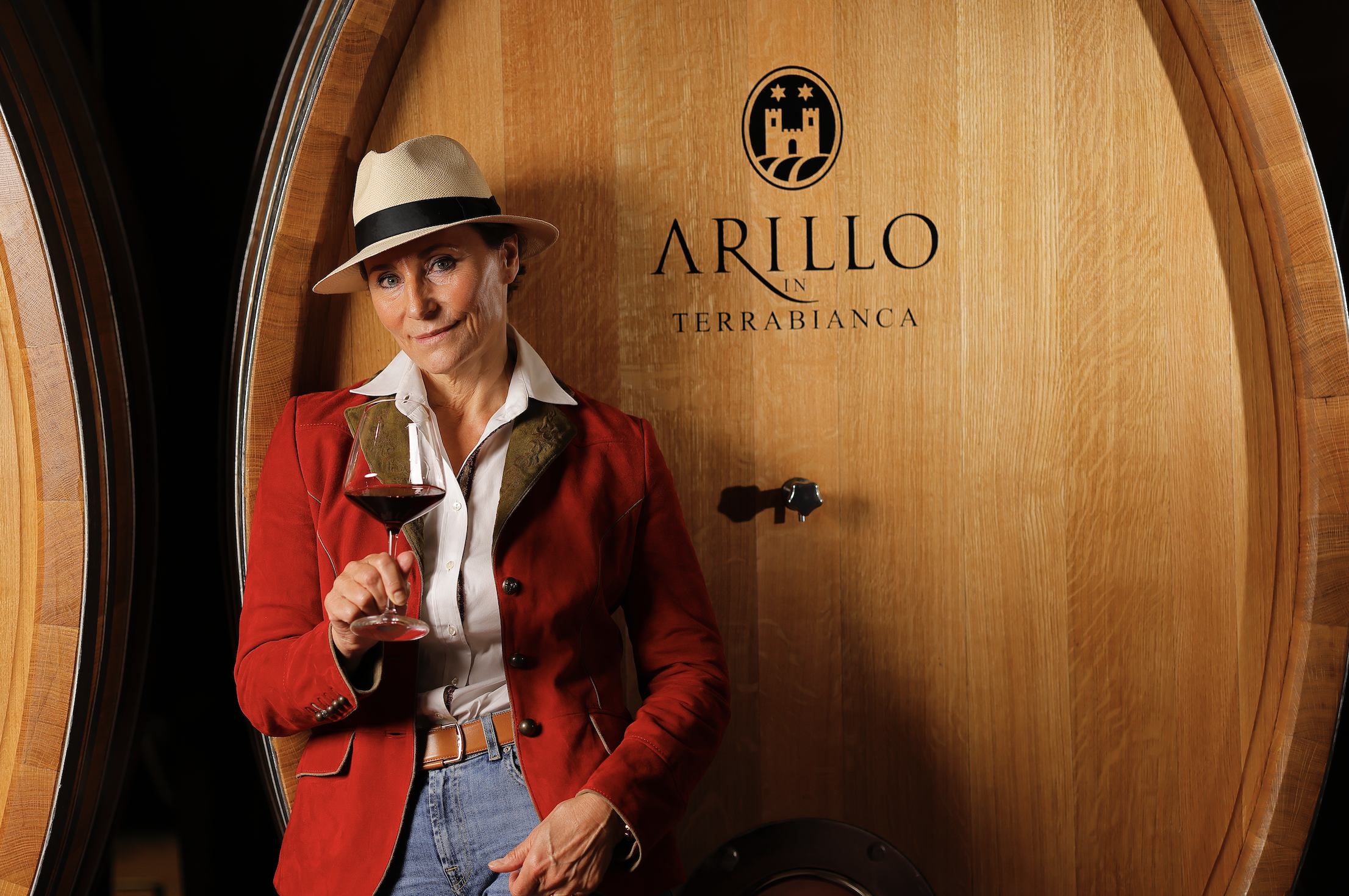 Why Arillo in Terrabianca's organic approach is paying off
Why Arillo in Terrabianca's organic approach is paying off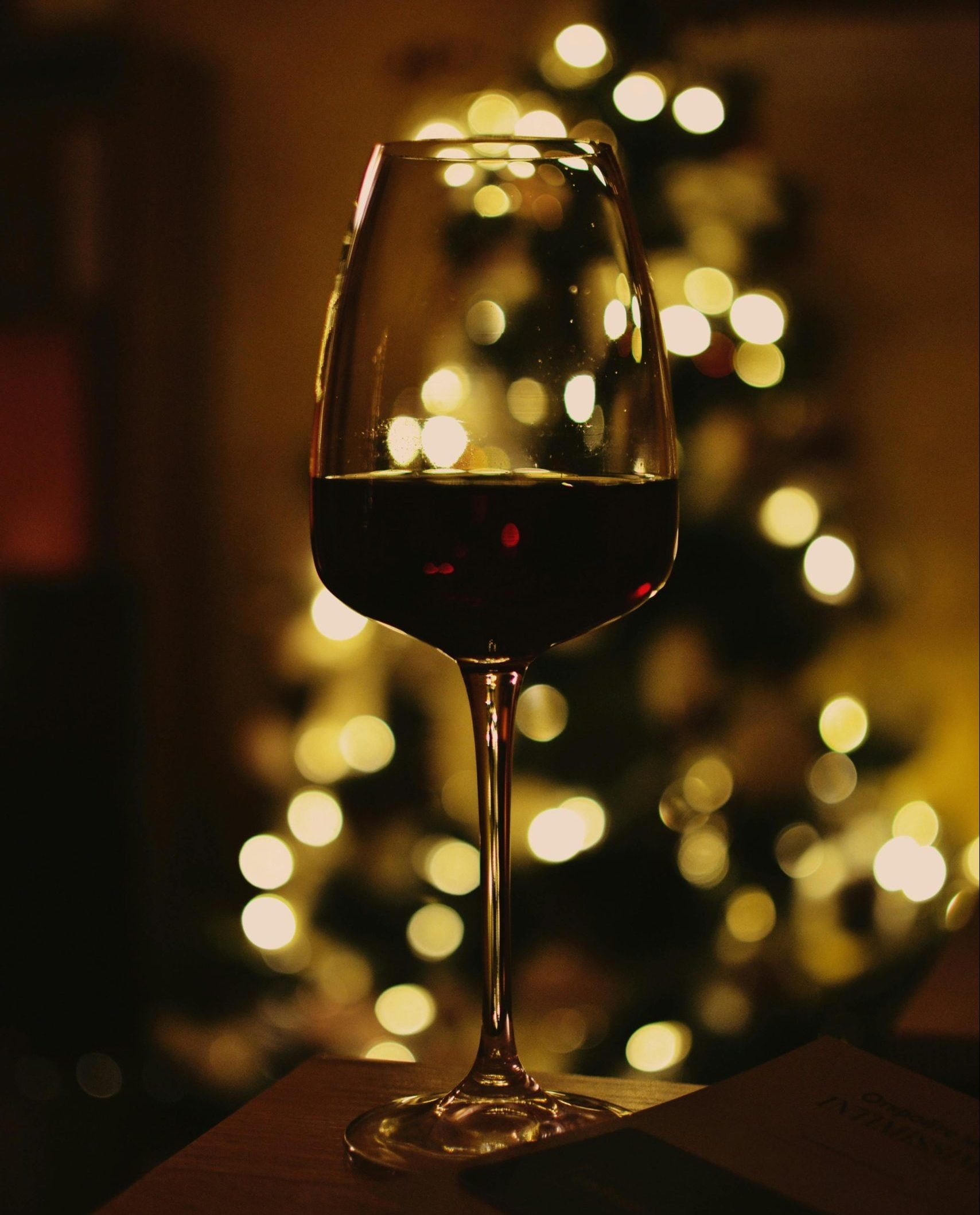 What do sommeliers drink at Christmas?
What do sommeliers drink at Christmas?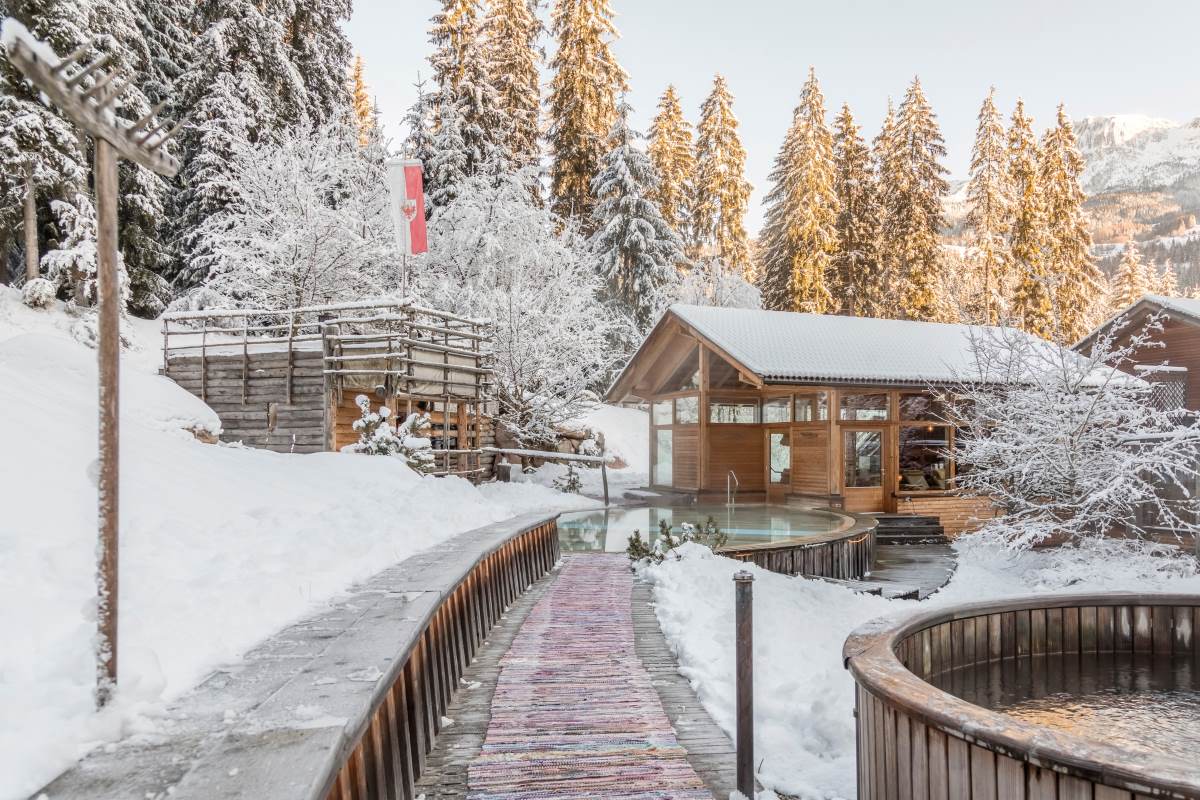 The alpine hotel where you can enjoy outstanding mountain cuisine
The alpine hotel where you can enjoy outstanding mountain cuisine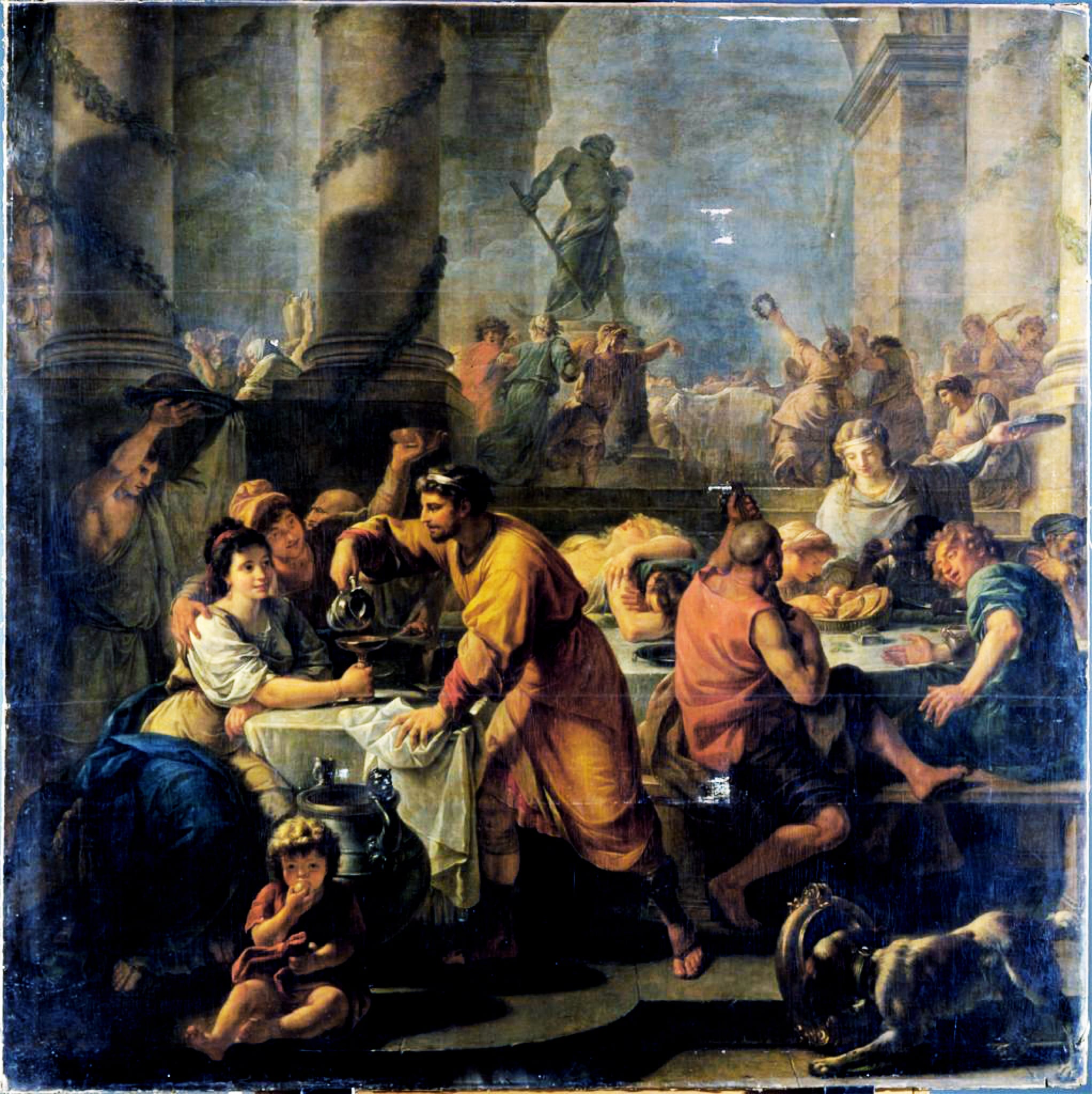 Io Saturnalia! How to celebrate the festive season like an Ancient Roman
Io Saturnalia! How to celebrate the festive season like an Ancient Roman